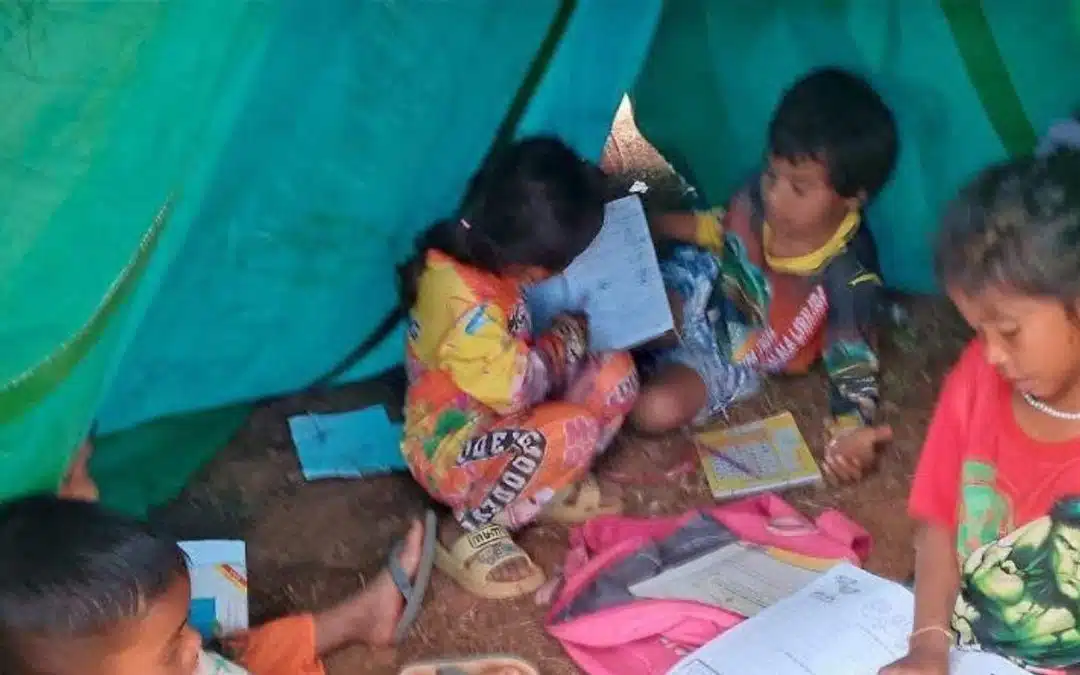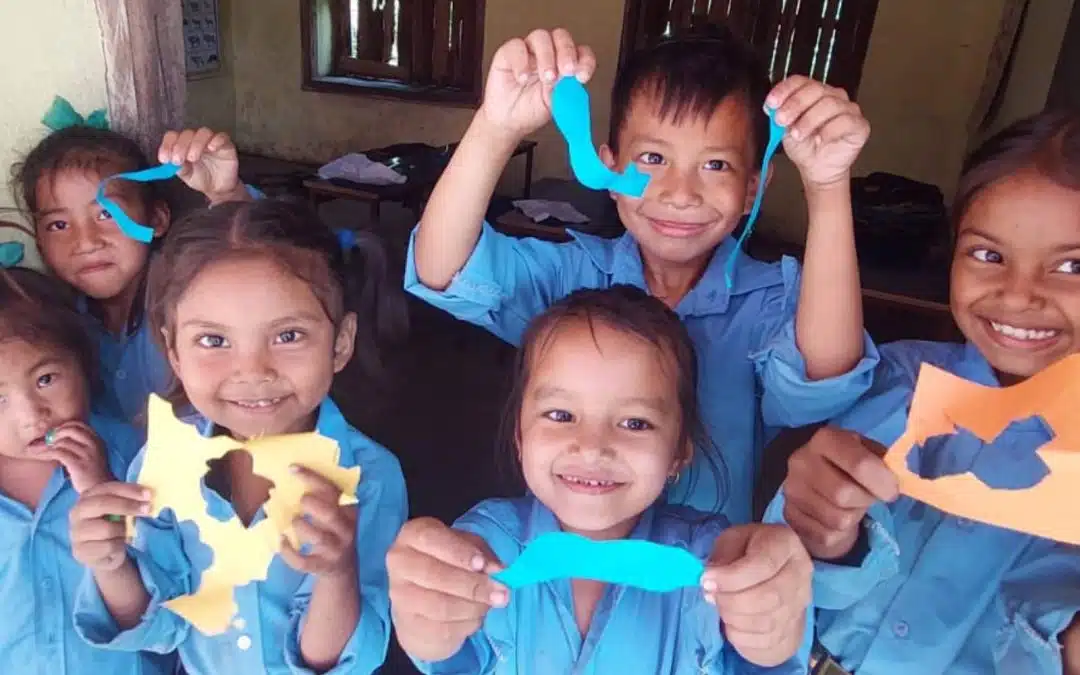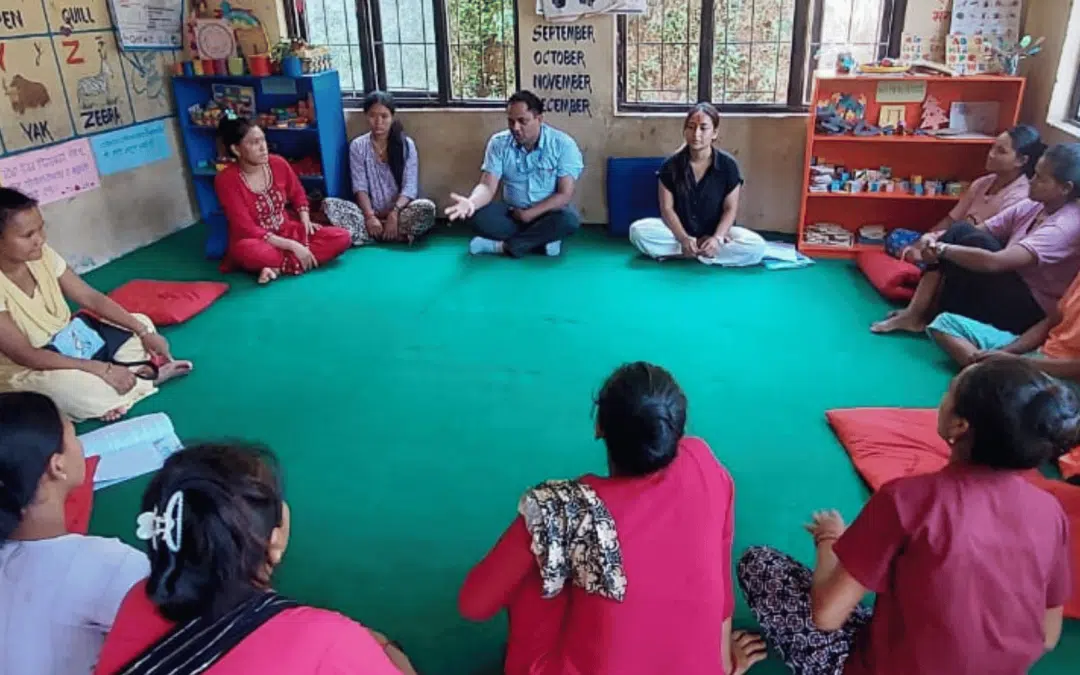
In Cambodia, the garment industry mainly employs women: they account for almost 80% of the factory workforce. Almost all of them are under 35 and are raising young children. Between long working days, tiring commutes and a lack of childcare solutions, their daily lives are a real challenge.
How to reconcile parenthood and work: Sothearos Khun, one of our crèche supervisors in Cambodia, explains the situation.
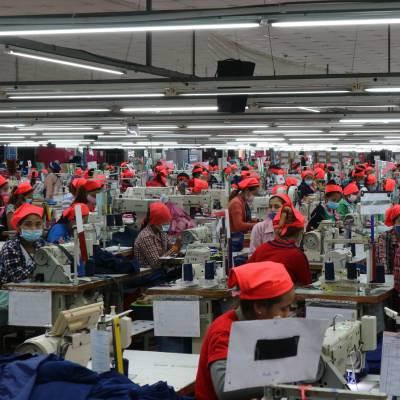
Sothearos, what does it mean to be a working mother in Phnom Penh today?
It means long days and not always peace of mind!
In textile factories, work normally runs from 7am to 4pm. But to cope with high demand, many workers are willing to stay on until 6pm. As these overtime hours are paid at between 1.5 and 2 times the hourly wage, this enables them to increase their monthly income from $208 (minimum wage) to around $300.
And you have to leave early in the morning. Women who don't live near the factory travel there in trucks that cost them $7 to $12 a month. These journeys also reduce the time spent with the children.
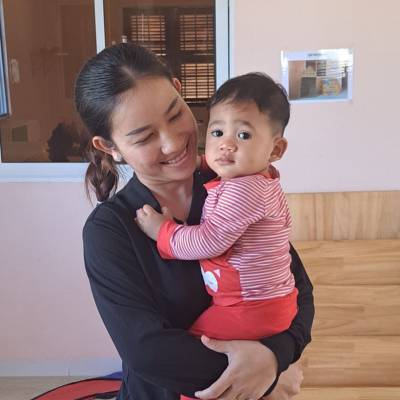
You talk a lot about mothers. What is the role of fathers in everyday life?
Mothers are still the main carers. They take care of most of the tasks related to feeding, health and education.
In rural areas, few men are on hand to help out, as they too go off to work in the city or have busy jobs (building sites, mechanics, street vending...). But in the crèches we've opened in recent years, we've noticed that parents often drop off their children together. And in the evenings, in 80% of cases, it's the fathers who pick up the child alone, as the mothers finish work later.
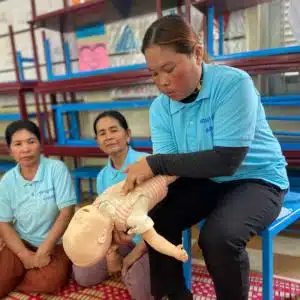
How easy is it for working parents to find childcare?
Finding a safe, affordable and stimulating place for the little ones is not always easy. Some parents entrust them to a grandmother or family member at home, others to neighbors they pay.
In Cambodia, the labor law stipulates 3 months maternity leave. Some women end up having to resign at the end of this leave, as they have no childcare solution.
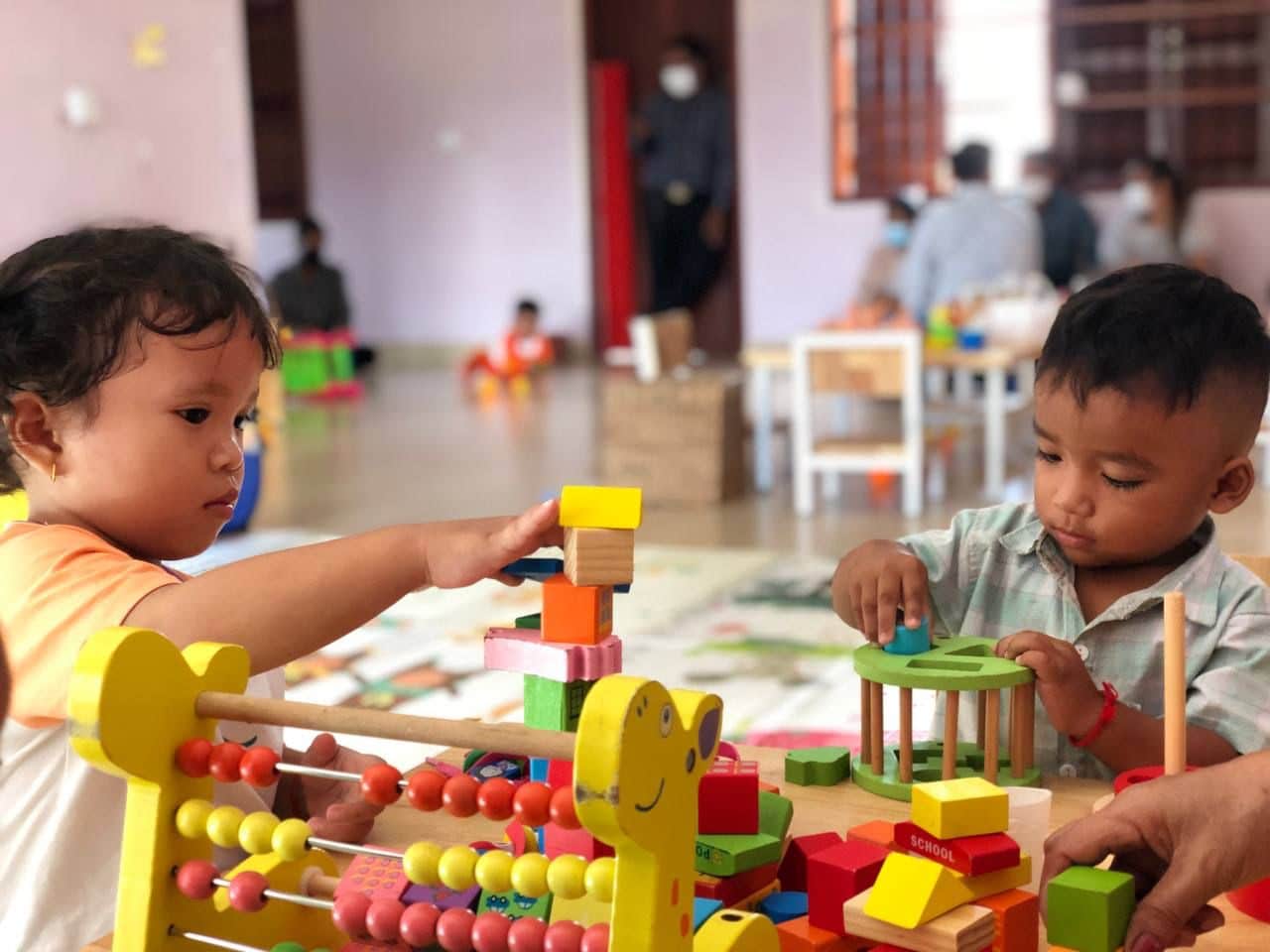
What do the crèches opened by Planète Enfants & Développement in recent years contribute?
These crèches have changed the lives of many parents. Both parents are supported in positive parenting practices and can go to work more serenely, improving the family's income and well-being.
I myself had the experience of questioning how to reconcile work and family life when I moved to Phnom Penh. I have twins and had no family members nearby to help me with the children when I went back to work. I was lucky enough to work on this nursery project. When I found my nanny, I taught her the tricks of the trade from our early childhood assistant training program. I also set up my house as a home crèche (with a few play areas, safety protections and toys adapted to my children). This has enabled me to continue working, kissing, hugging and caring for my children after work every day.
Do these parents in their thirties tell you what they expect?
Yes, of course, we organize meetings so that they can express their expectations. Overall, they're looking for child safety, good hygiene, healthy food, the assurance that their children will grow up well, and above all, at an affordable cost. They are looking for job stability, and fear that a crèche closure will force them to choose between work and childcare.

